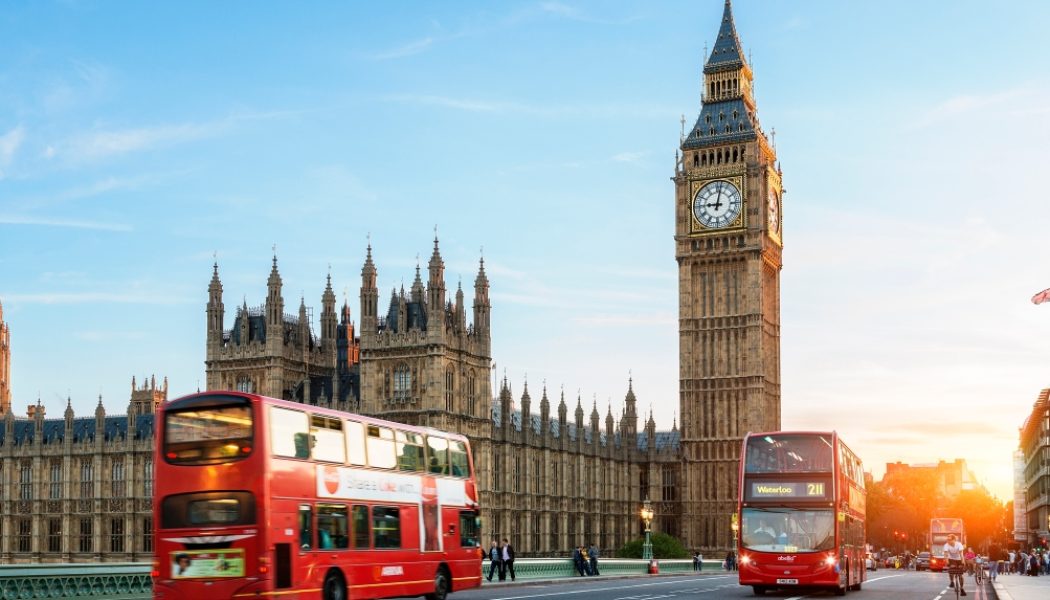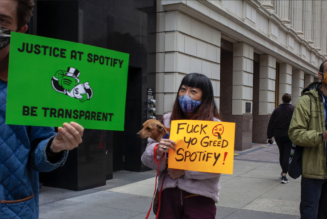
LONDON – The U.K. government has proposed a law requiring record companies to pay musicians and songwriters a bigger cut of revenue from music streams on platforms like Spotify and Apple Music, a move that would bring streaming closer in line with radio and television broadcasts in the country.
The Copyright (Rights and Remuneration of Musicians) Bill was published Wednesday (Nov. 24) and will be presented to Parliament on Dec. 3.
The Bill would obligate record companies to pay performers ‘equitable remuneration’ when music is streamed. A similar statutory right already exists in the U.K. for TV and radio broadcasts, where performers receive 50% of the revenues distributed by the collecting society PPL, with the rest going to record labels and publishers.
If a version of equitable remuneration were applied to music streams it could result in a significant change from the current arrangement, in which DSPs retain 30% of streaming revenue, with around 55% goings to record labels (who then pay a royalty to artists), and 15% passing to the publisher and songwriter (typically split 80/20 between songwriter and publisher). The proposed copyright reforms state that revenue splits resulting from equitable remuneration would need be negotiated between performers and labels.
The bill also calls for labels and music publishers to provide performers and songwriters with comprehensive quarterly reports detailing how their works are used online and what income is generated.
While artist and songwriter groups have welcomed reforms to the streaming economy, record labels and rights holders reacted harshly on Wednesday to the new bill. Industry groups argue that equitable remuneration would impact their ability to negotiate competitive deals with streaming services on behalf of artists and would greatly reduce the amount of money they would have to invest in new artists, marketing and A&R.
The bill “would bind British music in red tape, reduce income for the most entrepreneurial artists, stifle investment and innovation by record labels, and disproportionately harm the independent sector,” says a spokesperson for labels trade body BPI, which represents all three major labels and many independents.
“It completely misunderstands today’s music business,” says the BPI, “and the value that labels provide in finding and nurturing talent.”
Independent labels group AIM said it was also concerned about the proposals. “The approach to streaming should be data first, discussion second, and law last,” it tweeted. “Legislating before this is reckless.”
Other proposed changes to the U.K. law include a “contract adjustment” right for performers and songwriters where they believe their royalty rates are disproportionally low. This will most benefit heritage artists signed to ‘legacy’ contracts where royalty rates are far lower than the 20% to 25% that’s typical for new artist deals.
MP Kevin Brennan, who is driving the law change, says the bill “seeks to allow performers and composers to access means to ensure a fair sharing of revenues generated from their works.”
Television and radio broadcasting, which is licensed under equitable remuneration in the U.K., generated £85 million ($113 million) in 2020, compared to £628 million ($838 million) from streaming, around 1/7th of the total, according to BPI.
The legislative proposals come on the back of a high-profile artist-led campaign for U.K. musicians and performers to receive a higher share of streaming revenues. The Digital, Culture, Media and Sport (DCMS) Committee, made up of 11 MPs, including Kevin Brennan and chair Julian Knight, spent eight months investigating the U.K. music industry.
It published a damning report in July recommending a “complete reset” of the streaming business, arguing it was unsustainable in its current form, and said the dominance of Universal Music, Sony Music and Warner Music was “distorting the market.”
Last month, the U.K. competition regulator said it was launching a review of the streaming sector, further ramping up the pressure on major label bosses. Preliminary work on that probe by the Competition and Markets Authority (CMA) is underway ahead of it conducting a market study of the U.K. music business. The CMA is also currently investigating Sony’s $430 million acquisition of Kobalt Music Group’s independent distribution and label division AWAL.
In the U.K., the three majors make up 75% of the recorded music market, with independents accounting for the remaining 25%, according to the Association of Independent Music (AIM). Streaming now accounts for four-fifths (80.6%) of all music consumption in the U.K., according to BPI.
“The growth of the streaming market has diverted too much wealth to multinational record labels at the expense of music makers,” said Graham Davies, CEO of The Ivors Academy, welcoming the bill. “These market distortions must be fixed.”
In October, 44 MPs wrote to the British Prime Minister Boris Johnson calling for the introduction of equitable remuneration to grant performers a greater share of streaming revenues.
The proposed bill will have its second reading in the House of Commons next Friday. If it passes, it will then go to Committee Stage before passing through to the House of Lords.
Getting the reforms passed into law is a lengthy and long-winded process, however. The proposed bill will have its second reading in the House of Commons next Friday, where MPs will debate its general contents. If it passes, it will then go to Committee Stage and then a Report Stage, where detailed examination of the bill takes place, including any suggested amendments and new clauses. After being approved by the House of Commons, the bill still has to be passed by the House of Lords, which also requires multiple readings, before it receives Royal Ascent and passes into law.










